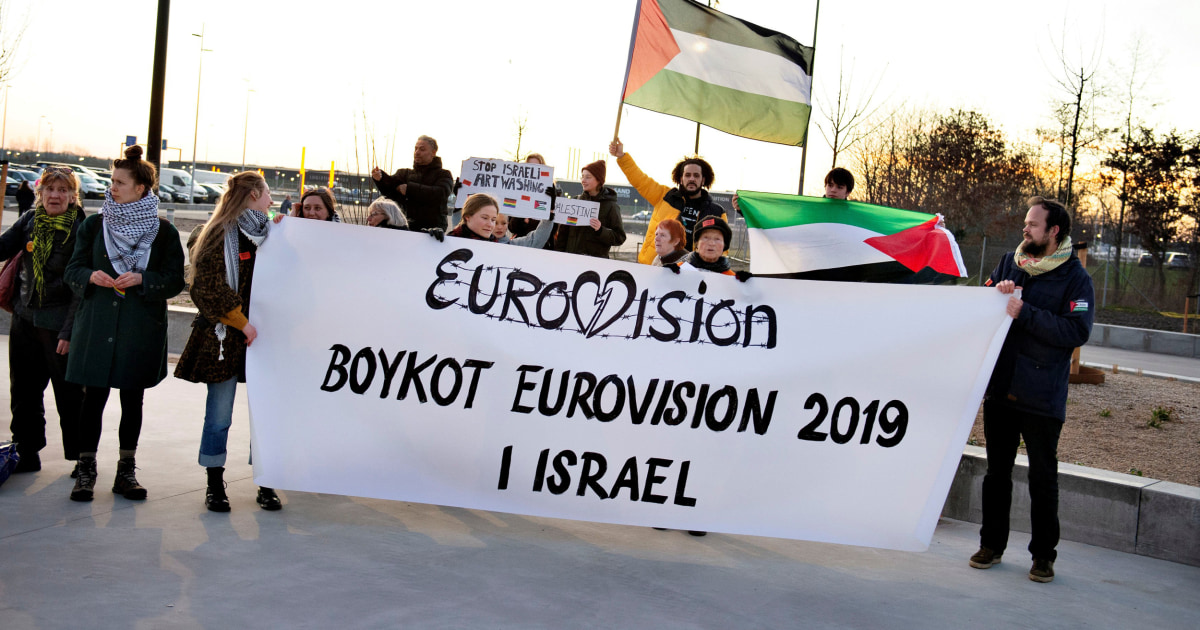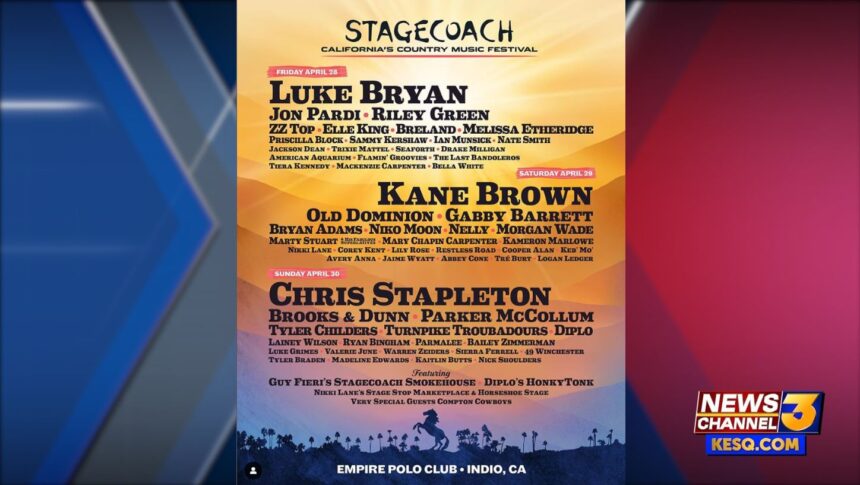Eurovision Director Rejects Boycott Calls Over Israel

Table of Contents
The Boycott Movement Against Israel's Eurovision Participation
The calls to boycott Israel's participation in Eurovision stem from a long-standing conflict and deep-seated concerns about human rights. The Boycott, Divestment, Sanctions (BDS) movement, and other activist groups, are at the forefront of this campaign, leveraging the global platform of Eurovision to amplify their message. Their arguments center on the Israeli occupation of Palestinian territories, the treatment of Palestinians, and alleged violations of international law.
- Criticism of Israeli occupation of Palestinian territories: Proponents of the boycott highlight the ongoing occupation as a violation of international law and a major obstacle to peace. They argue that allowing Israel to participate normalizes its actions.
- Concerns about the treatment of Palestinians: Reports of human rights abuses, including restrictions on movement, demolitions of homes, and disproportionate use of force, fuel the boycott calls. Activists maintain that Eurovision should not provide a platform for a country accused of such actions.
- Allegations of violations of international law: The use of settlements, the blockade of Gaza, and other policies have been cited as violations of international humanitarian law and human rights conventions. Boycott supporters believe that participating in Eurovision contradicts these principles.
The Eurovision Director's Response and Justification
In response to the mounting pressure, the Eurovision director issued a statement firmly rejecting the calls for a boycott. The director emphasized Eurovision’s commitment to inclusivity and artistic expression, arguing that politicizing the competition would undermine its core values. They asserted that all participating countries, regardless of their political standing, have the right to participate and express themselves through music. The specific statement emphasized Eurovision's role as a celebration of music and cultural exchange, not a political forum.
- Emphasis on Eurovision's principles of inclusivity and artistic expression: The director's statement highlighted the competition's history of bringing together diverse nations and cultures, regardless of political differences.
- Arguments against politicizing the competition: The director argued that turning Eurovision into a battleground for political agendas would damage its integrity and dilute its artistic purpose.
- Defense of Israel's right to participate: The statement unequivocally defended Israel’s right to participate in the Eurovision Song Contest, highlighting the event's commitment to non-discrimination based on nationality.
Reactions and Impact of the Decision
The Eurovision director's decision has elicited a wide spectrum of reactions. Pro-boycott groups expressed disappointment and vowed to continue their campaign, arguing that the decision ignores the serious human rights concerns. Pro-Israel groups, on the other hand, applauded the decision, praising the adherence to the principles of artistic expression and non-discrimination. The media coverage has been extensive, with many outlets covering both sides of the debate, reflecting the global significance of this controversy.
- Statements from pro-boycott groups: These groups voiced their frustration and reiterated their calls for a boycott, emphasizing the ethical implications of allowing Israel to participate.
- Statements from pro-Israel groups: These groups celebrated the decision, emphasizing the importance of maintaining the apolitical nature of the Eurovision competition.
- Analysis of media coverage: The extensive media coverage reflects the broad international interest in this controversy and the impact of the director's decision.
- Potential long-term consequences for Eurovision: The controversy raises questions about the future of the competition and its ability to remain a purely artistic event.
The Future of Eurovision and the Israeli Participation Debate
The debate surrounding Israel's participation in Eurovision remains unresolved and is likely to continue. Future scenarios might involve changes to Eurovision's rules or guidelines regarding political neutrality, increased pressure from boycott movements, or further attempts to politicize the event. The ongoing dialogue necessitates a deeper examination of the intersection between human rights and international events, forcing the Eurovision Song Contest to constantly re-evaluate its role in the global landscape.
- Potential changes to Eurovision’s rules or guidelines: The controversy might lead to stricter rules about the political expression within the competition, or more explicitly address the ethical considerations of participation.
- Predictions about future boycott attempts: Despite the director's decision, future boycott attempts are highly likely, as the underlying political issues remain contentious.
- The ongoing dialogue surrounding human rights and international events: This controversy underlines the increasingly blurred lines between art, politics, and human rights in global events.
Eurovision Director's Stand on Israel Boycott: A Turning Point?
The Eurovision director's rejection of boycott calls over Israel's participation is a pivotal moment in the history of the competition. While upholding the principles of inclusivity and artistic expression, the decision has not silenced the debate. The controversy underscores the complex interplay between politics, art, and human rights, and its lasting impact on the future of the Eurovision Song Contest remains to be seen. We urge readers to share their thoughts on this complex issue, engage in respectful dialogue, and continue researching the various perspectives to form your own informed opinion. Use #EurovisionBoycott #IsraelEurovision #EurovisionControversy to join the discussion.

Featured Posts
-
 20 Fevralya Kot Kellog Pribudet V Ukrainu Obzor Novostey Smi
Apr 25, 2025
20 Fevralya Kot Kellog Pribudet V Ukrainu Obzor Novostey Smi
Apr 25, 2025 -
 Wednesday Storm Timeline For Oklahoma Hail And Strong Wind Warnings
Apr 25, 2025
Wednesday Storm Timeline For Oklahoma Hail And Strong Wind Warnings
Apr 25, 2025 -
 The Dnieper River A Path Towards Peace And Regional Stability
Apr 25, 2025
The Dnieper River A Path Towards Peace And Regional Stability
Apr 25, 2025 -
 Renting I Pads For Enhanced Business Conference Networking
Apr 25, 2025
Renting I Pads For Enhanced Business Conference Networking
Apr 25, 2025 -
 Stagecoach Festival 2025 A Guide To The Lineup Performances And Experience
Apr 25, 2025
Stagecoach Festival 2025 A Guide To The Lineup Performances And Experience
Apr 25, 2025
Latest Posts
-
 The China Factor Analyzing The Difficulties Faced By Bmw Porsche And Other Auto Brands
Apr 26, 2025
The China Factor Analyzing The Difficulties Faced By Bmw Porsche And Other Auto Brands
Apr 26, 2025 -
 The Growing Problem Of Betting On Natural Disasters Focus On Los Angeles
Apr 26, 2025
The Growing Problem Of Betting On Natural Disasters Focus On Los Angeles
Apr 26, 2025 -
 Los Angeles Wildfires A Case Study In Disaster Speculation
Apr 26, 2025
Los Angeles Wildfires A Case Study In Disaster Speculation
Apr 26, 2025 -
 How Middle Management Drives Company Growth And Employee Development
Apr 26, 2025
How Middle Management Drives Company Growth And Employee Development
Apr 26, 2025 -
 Analyzing The Trend People Betting On The Los Angeles Wildfires
Apr 26, 2025
Analyzing The Trend People Betting On The Los Angeles Wildfires
Apr 26, 2025
